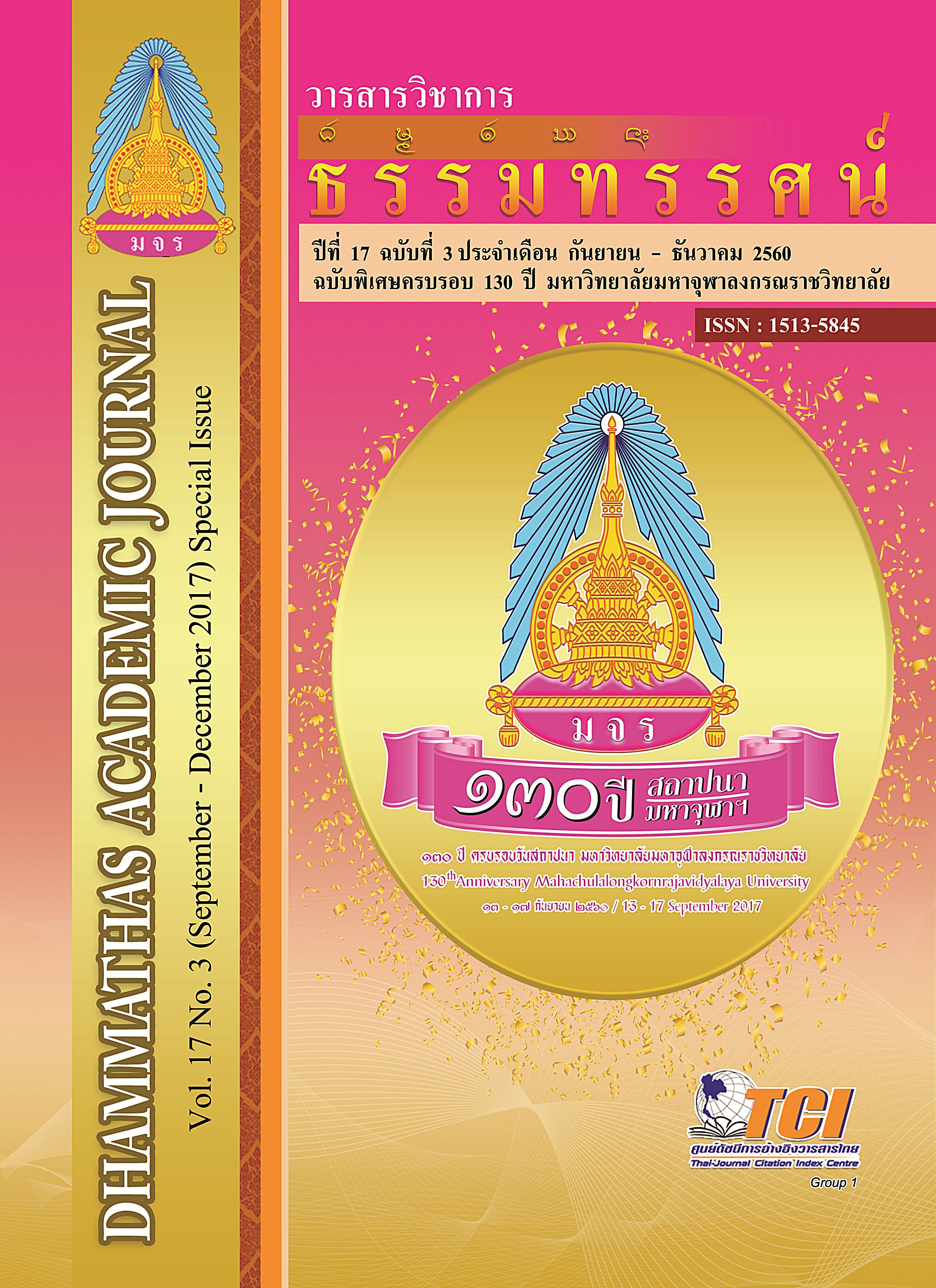An Analytical Study of Kongsibsee Administration Model in The Contemporary Thai Society
Main Article Content
Abstract
The purposes of this study were 1) to study the administration in line with Klong Sib See principle in Esan ancient tradition, 2) to study the style of Klong Sib See principle in Esan ancient tradition, and 3) to study the way of administration in line with Klong Sib See principle in the current Thai society. The study was a qualitative research. The tool used was the interview. The samples were Sangha administrators, Buddhist scholars, administrative scholars, administrators, and professional philosophers of ancient tradition. Descriptive Research was used for analyzing the data.The purposes of this study were 1) to study the administration in line with Klong Sib See principle in Esan ancient tradition, 2) to study the style of Klong Sib See principle in Esan ancient tradition, and 3) to study the way of administration in line with Klong Sib See principle in the current Thai society. The study was a qualitative research. The tool used was the interview. The samples were Sangha administrators, Buddhist scholars, administrative scholars, administrators, and professional philosophers of ancient tradition. Descriptive Research was used for analyzing the data.
The results of the study revealed the following: for people, Klong Sib See could be compared as the constitution that regulated people in behaving rigorously; if somebody did against, he/she would be punished by being away and blamed by others. People who followed Klong Sib See would be a part to make the peaceful society and live happily together with kindness. Besides the principle caused the happy society in both individual and social level, it was still something that assisted people be responsible for living in the society by combining with original belief in directing the way of life as well as in Lan Xang community, influent culture for Esan people up until now, since in the past. It was because Klong Sib See indicated the routine in daily life as in the social regulation of the constitution which governed the nation connected closely to Buddhism as if it was united with superstition, miracle, and supernatural belief concordantly.
The relations between Klong Sib See and Buddhist principle were fundamental in Buddhist scripture that contained the principles of government center as follows. The virtues of the king of which was the Dhamma principle could make members be fond, obeyed, respectful, confident, and co-operative were helpful for the administration. Aparihāniyadhamma, things leading never to decline but not only to prosperity, was the management that gave society the equality by Dhamma Unity in Theravāda, the foundation of the behavior in both individual and public. And Sevenfold Sappurisa-dhamma, quality of a good man, was a morality for good person and leader as well.
